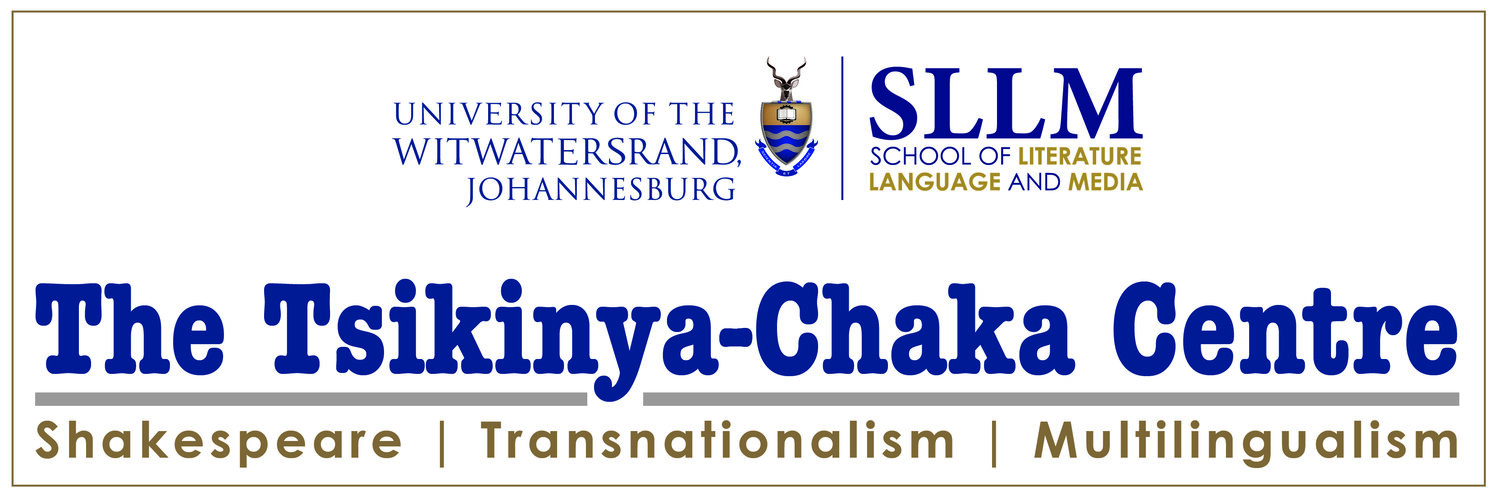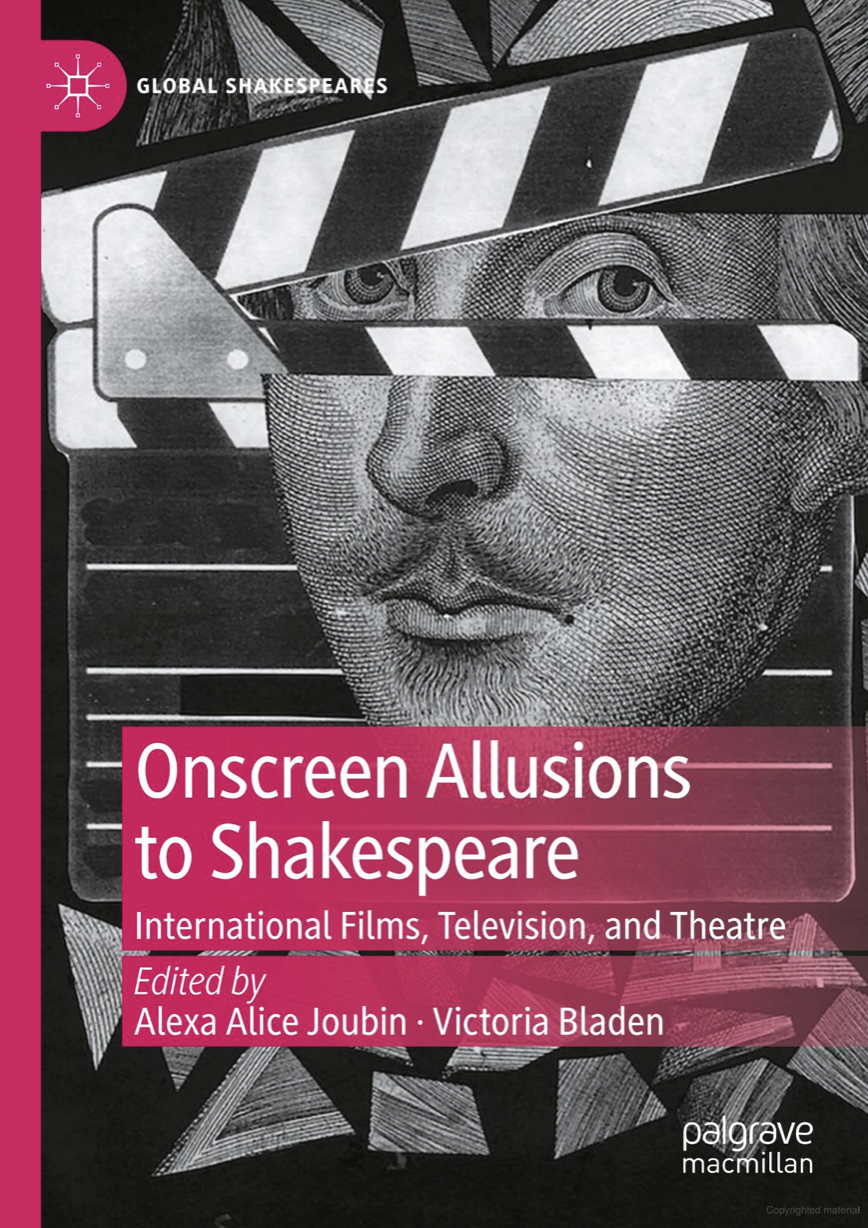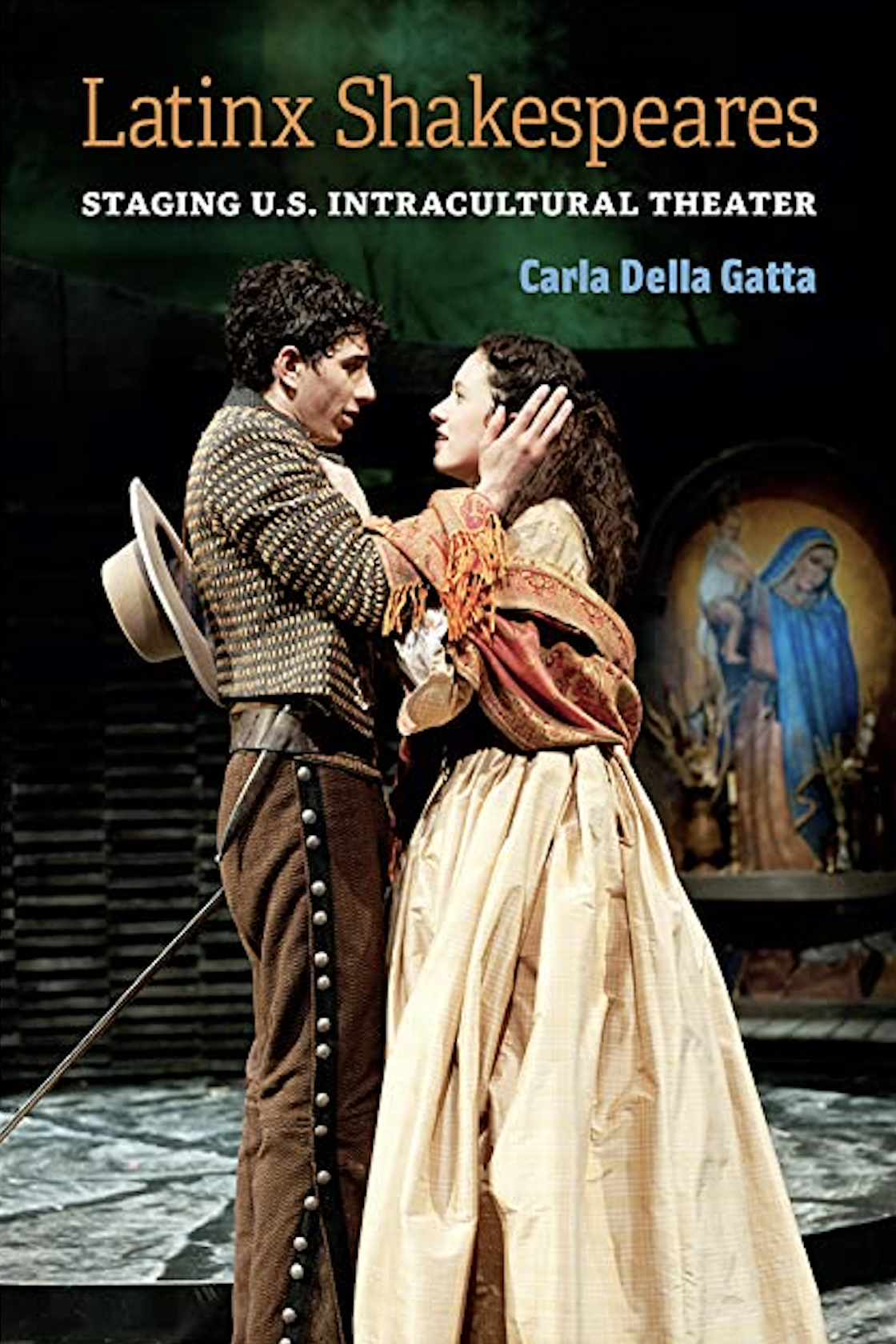2022 book round-up
In 2021 we dedicated our December update to a summary of new books written or edited by TCC affiliates. This year, we thought we’d create a second annual instalment and see if the tradition sticks. These are all fantastic publications worth celebrating!
Chris Thurman and Deryck Uys holding hot-off-the-press copies of Koning Richard III.
To begin at the end . . . we are excited to present the first title published by TCC Press: Deryck Uys’ Afrikaans translation of Richard III, which just came back from the printers! It will be followed in 2023 by translations of Macbeth, King Lear and Romeo and Juliet.
This series is made possible by our sponsors and partners, Legacy Underwriting Managers - as always, we are very grateful for their support.
Read more about the Deryck Uys series and other forthcoming TCC Press titles here, or visit our online store to place an order.
You can also listen to Ilse Salzwedel of RSG interviewing TCC Director Chris Thurman about TCC Press and Shakespeare in Afrikaans (via Spotify or Omny).
Amrita Sen of the University of Calcutta has previously co-edited Civic Performance: Pageantry and Entertainments in Early Modern London (Routledge 2020) and a special issue of the Journal for Early Modern Cultural Studies on “Alternative Histories of the East India Company” (2017). Her research focuses on Shakespeare adaptations, early modern drama and the early activities of the East India Company.
Now, with Digital Shakespeares from the Global South (Palgrave Macmillan 2022), she aims to shift the scholarly conversation about digital appropriations of Shakespeare away from its Anglo-American bias. This edited collection includes individual essays examining digital Shakespeares from South Africa, India and Latin America, addressing questions of accessibility and the digital divide.
Contributors to the book include TCC Director Chris Thurman, who writes about Covid-era digital Shakespeares in/from South Africa, and TCC affiliate Alexa Alice Joubin, whose afterword positions Shakespeare as a “digital nomad” - an artist whose livelihood depends on commissions online and who works from any number of physical locations, who may not have a place to call home but who can also lay claim to any cultural location.
Joubin, who teaches at George Washington University, serves as founding co-Director of the Digital Humanities Institute. She is also the founding co-Director of Global Shakespeares, an open-access performance video archive. Together with Victoria Bladen of the University of Queensland, she has edited Onscreen Allusions to Shakespeare: International Films, Television and Theatre (Palgrave Macmillan, 2022).
This volume has its origins in a conference held at the University of Ferrara in 2013 under the theme of “Shakespeare in Tatters” - an event convened by the late Mariangela Tempera, who was head of the Centro Shakespeareano Ferrara. In their editors’ introduction, Joubin and Bladen note that Shakespeare’s plays and motifs have been appropriated in fragmentary forms on screen since motion pictures were invented in 1893. Allusions to Shakespeare haunt contemporary culture, whether through brief references or sustained intertextual engagements.
In exploring Shakespeare’s spectral presence in modern culture, the essays in the collection consider how tattered allusions to Shakespeare constitute appropriations - rather than adaptations - of Shakespeare, in various national and regional contexts: India, Brazil, Russia, France, Australia, South Africa, East-Central Europe and Italy.
The expertise and interests of the TCC’s affiliate members are by no means limited to Shakespeare - and indeed this breadth reflects the remit of the Centre, which may focus on Shakespeare but expands to take into account transnationalism, multilingualism, pedagogy, language advocacy and creative practice beyond a purely Shakespearean paradigm. It is only appopriate, then, to highlight two publications from 2022 edited or co-edited by TCC affiliate members at the University of the Witwatersrand.
Dilip Menon’s Changing Theory: Concepts from the Global South (Routledge, 2022) draws on linguistic concepts from 16 languages from Asia, Africa, the Arab world and South America; the essays in the volume explore the entailments of words while discussing their implications for the humanities and the social sciences everywhere. The collection thus generates a conceptual vocabulary allowing for a global conversation on social theory - one that will necessarily be multilingual.
Belinda Mendelowitz is one of the co-editors, together with Ana Ferreira and Kerryn Dixon, of Language Narratives and Shifting Multilingual Pedagogies: English Teaching From the South (Bloomsbury, 2022). This book challenges monoglossic ideologies, traditional language pedagogies and dominant forms of knowledge construction by foregrounding multilingual and multicultural students' language narratives, repertoires and identities. The research is based on a sixteen-year longitudinal study of a sociolinguistics course at Wits University and the language narratives produced by education students.
Finally, there are two books forthcoming in January 2023 - and we can’t help but mention them too!
Continuing in a non-Shakespearean vein: Robyn Tyler’s Translanguaging, Coloniality and Decolonial Cracks: Bilingual Science Learning in South Africa (Multilingual Matters, 2023) is an ethnography of bilingual science learning that connects microanalyses of classroom discourse to broader themes of de/coloniality in education. Tyler, who is a Senior Researcher at the Centre for Multilingualism and Diversities Research at the University of the Western Cape, examines the linguistic landscape of a South African school, and the attitudes of staff and students which produce both coloniality and cracks in its edifice.
And to finish on a Shakespeare note: next month will also see the publication of Carla Della Gatta’s Latinx Shakespeares: Staging U.S. Intracultural Theater (University of Michigan Press, 2023). Della Gatta teaches at Florida State University and previously co-edited Shakespeare and Latinidad with Trevor Boffone (2021). In her new book she investigates the history, dramaturgy and language of the more than 140 Latinx-themed Shakespearean productions in the United States since the 1960s, drawing on interviews with practitioners, script analysis and interdisciplinary theoretical lenses.








